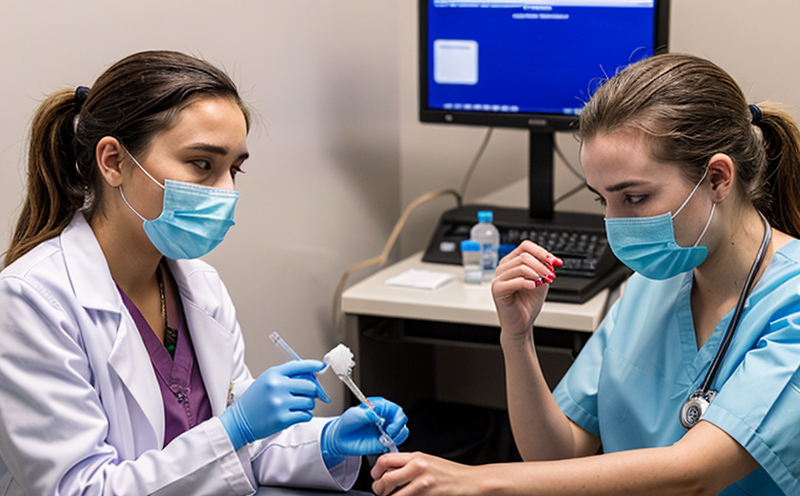ASTM E2998 Pathogen Detection in Clinical Matrices Testing
The ASTM E2998 standard provides a comprehensive approach to the detection of pathogens in clinical matrices, ensuring accurate and reliable identification of microorganisms that can cause infections. This service is pivotal for healthcare providers, pharmaceutical companies, and medical device manufacturers who must ensure the safety and efficacy of their products.
The ASTM E2998 protocol outlines a systematic method to detect pathogenic bacteria and fungi in various clinical samples, including blood, urine, cerebrospinal fluid, and other body fluids. The service involves meticulous sample preparation, inoculation onto selective media, incubation under optimal conditions, and identification of colonies using biochemical tests.
The process begins with the collection of clinically relevant specimens from patients suspected to have an infection. Proper specimen handling is critical to ensure accurate results. Samples are then transported to our laboratory in sterile containers and processed promptly upon receipt. Our team of highly trained microbiologists performs initial screening to differentiate between potential pathogens and commensal flora.
The core of the ASTM E2998 protocol involves inoculating samples onto selective media plates designed to support the growth of specific pathogens while inhibiting non-pathogenic microorganisms. This step is crucial for isolating pure cultures, which are essential for accurate identification. Once colonies form on the media, they are examined under a microscope and subjected to further biochemical testing.
After identifying candidate pathogens, our lab utilizes advanced molecular techniques such as polymerase chain reaction (PCR) and mass spectrometry to confirm the presence of target organisms. These methods provide rapid and precise identification, reducing the risk of false positives or negatives. Our laboratory adheres strictly to international standards like ISO 17025 for quality management and ISO 15189 for proficiency in medical laboratories.
Quality and Reliability Assurance
- Our laboratory maintains strict adherence to the ASTM E2998 protocol, ensuring consistent results across all tests.
- We employ rigorous quality control measures, including regular calibration of instruments and validation of reagents.
- Absolute compliance with ISO 17025 ensures that our testing processes are robust and reliable.
The reliability of ASTM E2998 pathogen detection is enhanced by the use of validated methods and continuous training for our microbiologists. Our laboratory participates in proficiency testing programs to ensure ongoing accuracy and precision.
International Acceptance and Recognition
The ASTM E2998 standard has gained widespread recognition across the global healthcare community, including regulatory bodies such as the US Food and Drug Administration (FDA) and the European Medicines Agency (EMA). Compliance with this standard is essential for ensuring that medical devices and pharmaceutical products meet stringent safety and efficacy requirements.
The ASTM E2998 protocol is recognized for its ability to provide robust, reproducible results in a wide range of clinical matrices. This makes it an invaluable tool for quality assurance programs in hospitals, clinics, and research institutions worldwide. By adhering to this standard, organizations can demonstrate their commitment to patient safety and regulatory compliance.
Competitive Advantage and Market Impact
- Prioritizing ASTM E2998 pathogen detection enhances a company's reputation for reliability and precision, which is crucial in today’s competitive healthcare market.
- Compliance with this standard can lead to faster product approvals from regulatory bodies, thereby accelerating time-to-market strategies.
The ASTM E2998 protocol also supports continuous improvement initiatives by providing objective data on pathogen presence and resistance patterns. This information is invaluable for R&D departments in developing new treatments and diagnostics.





